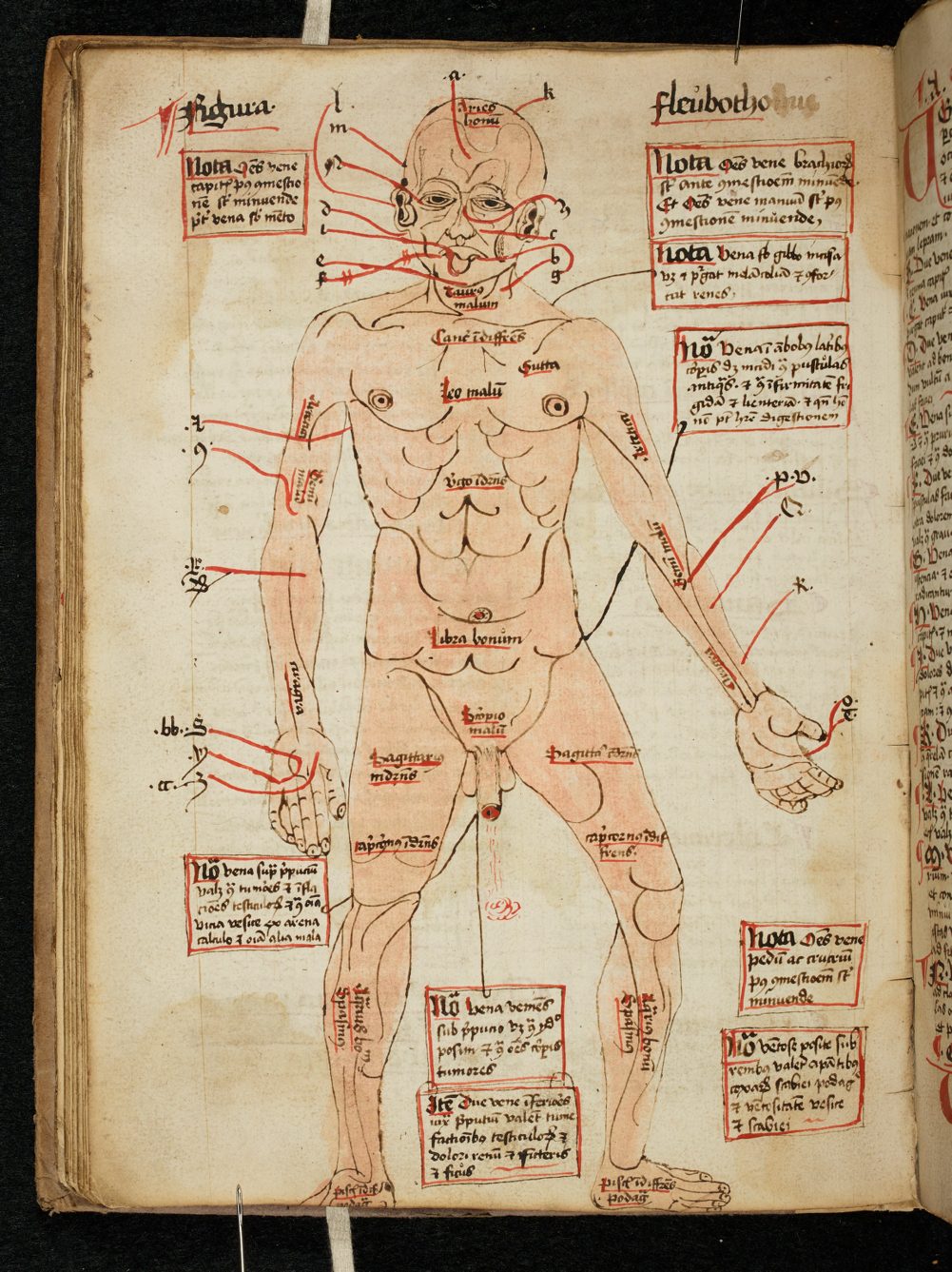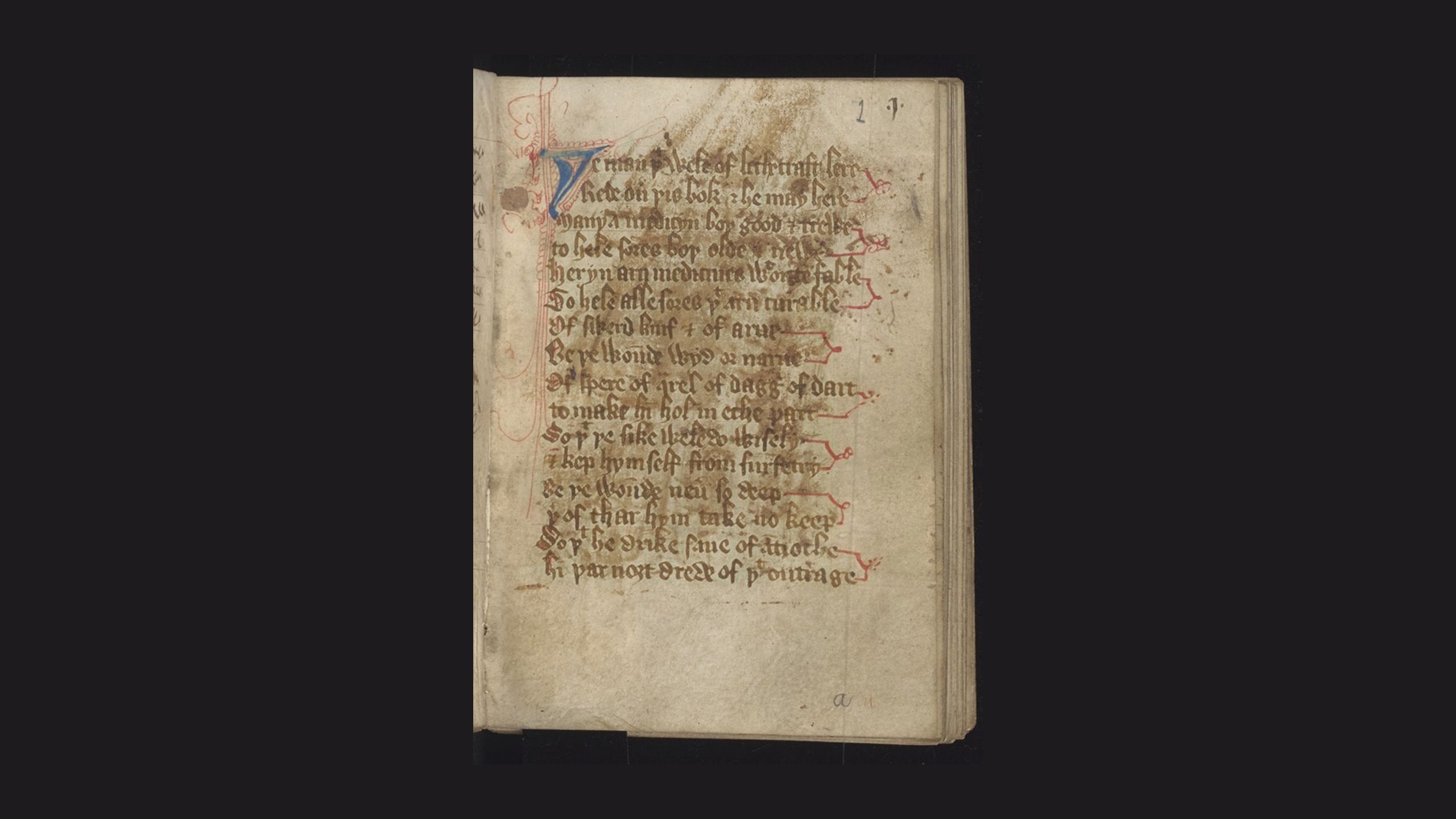As a general rule, if you’re going to get sick, you should try not to do it in the past. The present? Sure. The future? Go for it. But the past? Extremely bad idea. At best, you’re going to be sat in the moonlight and just told you feel better – and at worst, you’re going to have a guy carving up your innards with a chainsaw.
Somewhere in the middle, there’s medieval medicine. A huge new project at Cambridge University Library in the UK is set to bring together unique and irreplaceable handwritten books from hundreds of years ago, revealing thousands of medical – or maybe we should say, “medical” – recipes and texts from medieval physicians.

Diagram of the human body, showing the veins to be opened for blood-letting, 16th century. Image: Cambridge University Library, 2022
“These manuscripts provide brilliant insights into medieval medical culture, and the recipes they contain bring us close to the interactions between patient and practitioner that took place many centuries ago,” said James Freeman, Medieval Manuscripts Specialist at Cambridge University Library, in a statement.
“These recipes are a reminder of the pain and precarity of medieval life: before antibiotics, before antiseptics and before analgesics as we would know them all today.”
That’s putting it mildly. One therapy for gout – a painful type of inflammatory arthritis whose modern treatment consists of ibuprofen and dietary changes – involves grinding a baked, salted owl into a powder and mixing it with boar fat to make a salve that you then rub on the affected area. If that’s not cruel and bizarre enough for you, maybe you could try an alternative: roasting a snail-stuffed puppy over a fire and using the fat from Fido for a salve instead.
In fact, the list of ingredients needed by a medieval “leechcraft” practitioner – always a good sign when your word for medicine involves the name of a bloodsucking worm – is “bewildering” in its scope. Some, like those detailed above, are grisly and hyper-specific; others are things you could find at any supermarket today, such as rosemary, pepper, and milk.

‘The man that will of leechcraft lere, Read on this book and he may hear, Many a medicine both good and true, To heal sores both old and new, Herein are medicines without fable, To heal all sores that are curable, Of sword, knife and of arrow, Be the wound wide or narrow, Of spear, of quarrel, of dagger, of dart, To make him whole in each part.’ More medical textbooks should be in rhyming couplets! Image Credit: Cambridge University Library, 2022
Behind the weird concoctions and medical misunderstandings is something eminently timeless: tales of the human condition.
“Behind each recipe, however distantly, there lies a human story: experiences of illness and of pain, but also the desire to live and to be healthy,” said Freeman. “Some of the most moving are those that remedies that speak of the hopes or tragic disappointments of medieval people: a recipe ‘for to make a man and woman to get children’, to know whether a pregnant woman carries a boy or a girl, and ‘to deliver a woman of a dead child’.”
The project will take these ancient remedies and bring them into the modern world – the digital world. Not only will over 180 manuscripts be digitized and made freely available online on the Cambridge Digital Library, but they will also have translations and context added for the lay reader, and have keyword searching enabled for scholars of medieval practices.
“Each manuscript will be accompanied by an accessible introduction aimed at a general audience: these will explain what a book contains, place it in a broader context, describe who owned it or pick out something significant about its history,” said Freeman. “The aim is to help both researchers and the public understand, study and value these unique and irreplaceable artefacts.”
Source Link: Roasted Puppy Fat And Salty Owls: Bizarre Medieval Medicine Revealed In New Digital Project